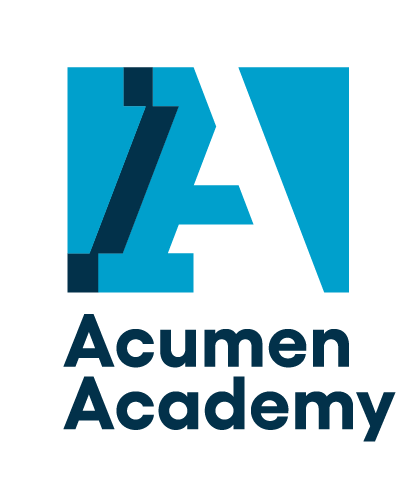What are some low cost approaches to train the team?
Two social entrepreneurs share their low cost strategies for developing teams through autonomy, shared learning, and the creative use of free resources, establishing a culture of learning within their organizations
Featured speakers

David Salas
Colombia Acumen Fellow

Andrea Escobar Hoyos
Colombia Acumen Fellow
David Salas
Colombia Acumen Fellow
Andrea Escobar Hoyos
Colombia Acumen Fellow
Transcript
David Salas, Founder and President, Disruptia
How have you trained your team to address the needs of the organization?
How to create a better team that will continue to grow over time?
It is one of my greatest challenges and I believe, particularly, that one's leadership is what happens when they are not there.
The first thing is to trust in autonomy, in the fact that each person is going to do their best. Our team is built, and you yourself will find the way or the path to train yourself, and we are going to trust that.
Second, there is something we are implementing and it's that we choose a book among all of us, among the whole team. What does Disruptia need most today, as a team? What do we need personally? We take the lesson to lots of books and say, "This is the one we are going to read."
Weekly, we share a chapter of that book. What were our visions? The two questions that always guide us are: How does this apply to our personal life and how does it apply to Disruptia?
So, this is the kind of education we do. First, autonomy, we have great confidence in you. Second, we are going to do everything possible to have joint spaces for learning along the way, based on what I and the organization need most.
That's kind of the style we have, our very own. We do not seek external training systems, but more internal, based on what is emerging here. Because I think we've seen that the best solutions come from within.
Andrea Escobar, Co-founder & Director, Fundación Soydoy
Skills, knowledge, practices. We do have, I think in particular, two strategies.
There are many free or low-cost resources to take online courses, to go to an in-person course, to fill a gap. The issue is the time and commitment of the person to do it.
And so, the strategy we embraced was, let's study together. We're going to do it online (we were in the middle of a pandemic), and we started the courses at Acumen, and other organizations. We started doing it together once a week for three hours.
And that changed everything.
That changed our knowledge, it also helped me change the culture a lot - and we are putting it into practice. So how do we approach those skills or those abilities? What do I need, and what do I want to see in the team?
And the other thing is mentorships. I am fascinated by learning from others. I think it's my favorite way to learn - books and people.
So when I meet people who have some particular knowledge, I usually tell them, "Will you give me one hour, two hours of your time?" And what I do is bring them into this learning space so that they can give us a pointed conversation about a topic. Or, with part of the team, in an area so that they can "double-click" on a particular topic that I see that person may need. I'd say, "Can she call you?" And say, "I'll leave you with that person who can help you."
I think that's also very nice, because at the end of the day, it's not about me having all the answers.
Key takeaways
Instill a culture of learning and development and encourage autonomy
First define the needs of the organization, then explore resources such as online courses and books for team discussions
Invite experts to provide mentoring and share their learnings with the team
